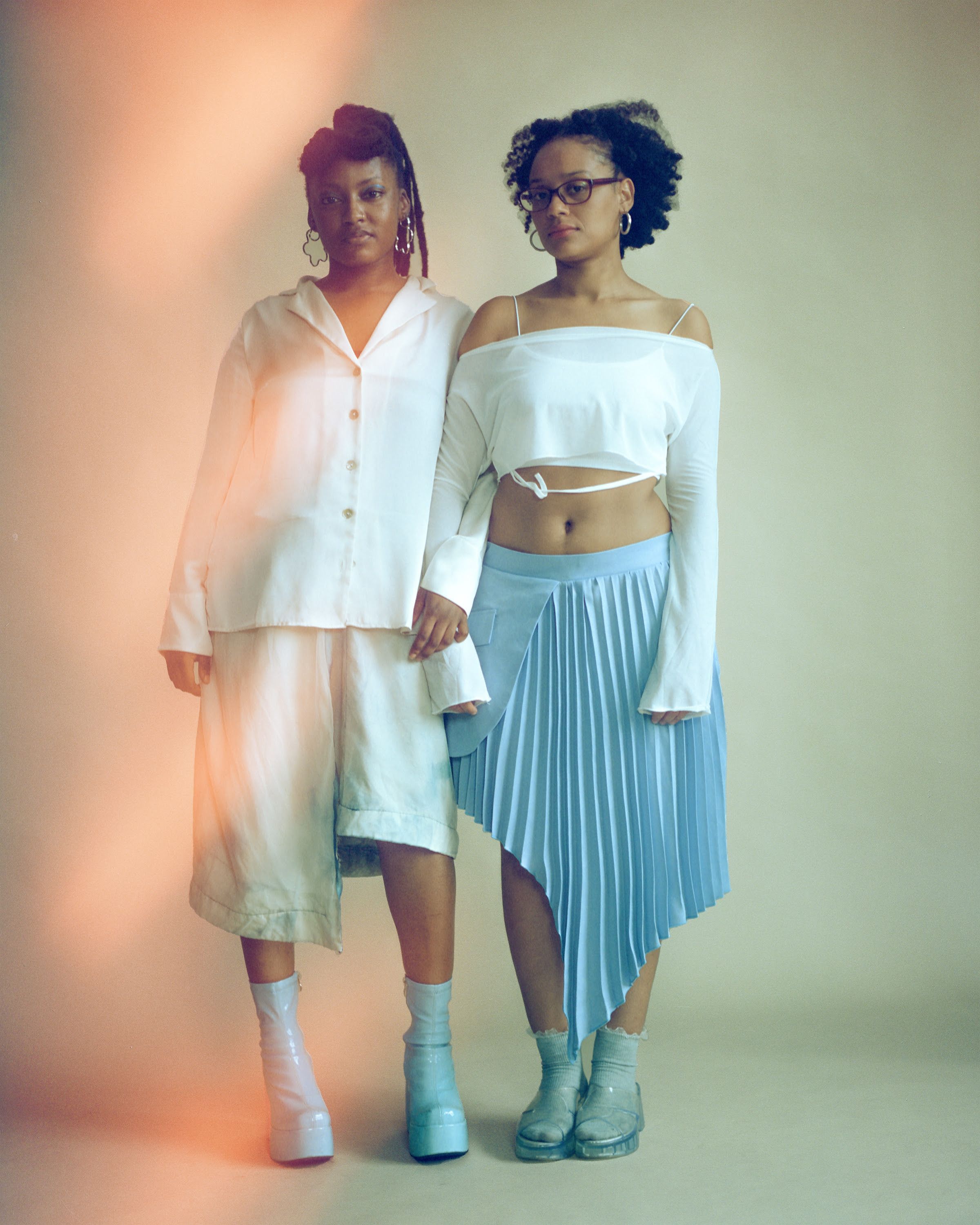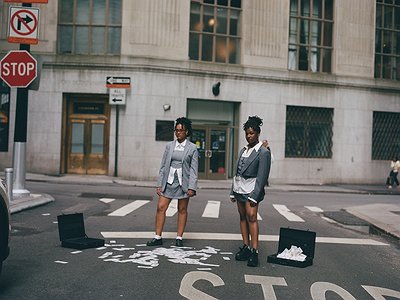Name: H31R
Members: Jwords, Maassai
Nationality: American
Current release: H31R's HeadSpace is out via Big Dada.
If you enjoyed this H31R interview and would like to stay up to date with their music, visit the duo on Instagram, twitter, Soundcloud, and tiktok.
The relationship between vocalist and producer is particularly important and close in hip hop. How would you describe yours?
Maassai: JWords provides a really fun canvas to decorate and combining our styles makes for something that’s really unique.
Jwords: We trust each-other with our own separate sounds. Coming together and creating comes naturally to us so we’re able to merge our worlds.
What tend to be the best collaborations in your opinion – those with artists you have a lot in common with or those where you have more differences? What happens when another musician take you outside of your comfort zone?
Jwords: I’ll say a bit of both. We have a lot of similarities but at the same time are very different from each other.
My favourite collaboration is when people are able to challenge each other to make something unique. Which is what we do with H31R.
Maassai: Being able to be understand each other I think is the biggest piece because we’re able to complement each other that way.
Hip hop is a very fast moving genre. But you took your time between ve·loc·i·ty and HeadSpace. What happened in these years for you creatively and how did that manifest itself in the new material?
Jwords: Yes, hip-hop does move fast, but personally I have to be able to go through life experience and lessons to create work I’m proud of. It's never a rush to drop music, especially if I don’t feel 100% about it.
Maassai: Those years were spent living, going through transitions, and finding what we wanted to say.
You mentioned that jazz is important as an influence for H31R. In which way?
Maassai: it’s experimental diasporic music.
Jwords: The essence of jazz is present in a way where we are free from expectations.
Maassai also worked with a band. What changes when you move from a band constellation to a more studio oriented music? What do you like and enjoy about these two scenarios?
Maassai: I really enjoy live instrumentation. Performing feels more improvisational but I really love the recording process.
Being able to add the layers and find exactly what tone of voice and vibe to time capsule a particular song in is one of my favorite parts of the creative process.
How would you describe the production process like for HeadSpace? What were ideas/concepts, challenges, and the most rewarding moments?
Jwords: My main goal when I’m creating H31R beats, I make sure it's glitchy, polyrhythmic and has the sense of hip hop fusion into techno.
The most rewarding moment was showing Maassai the ‘backwards’ beat, knowing she’ll love it and her writing the whole song in 15 mins.
Challenges were sealing the album and deciding it was finished. We've both been through a lot of growth in the past 3 years while creating the album. So we wanted to capture that growth, making it the theme for the album.
How and for what reasons has your music set-up evolved over the years and what are currently some of the most important pieces of gear and software for you?
Jwords: My gear is always changing. I get inspired when I get a new piece of gear.
But my main set-up has been the same for years, a sampler I can recall patterns from, a synth I can play leads on, a drum machine I can sync to my sampler to add sounds. When it comes to performing live it makes it easier for me to recall all my music.
Ableton is the most important software for us, it’s where we record all our music. Op-1 and TX-6 mixer are important for our live performances. 
H31R Interview Imahe by Dominique Mills
Have there been technologies which have profoundly influenced, changed or questioned the way you make music?
Maassai: I guess when I started using Ableton it really changed the game for me and my artistic process because I used to rely on the studio to make music. It’s great to be in a cozy element and be able to make art.
We recorded most of HeadSpace in JWords' home studio and I think it made for a level of comfortability I think is evident in the music.
Jwords: Not really. I don’t put to make pressure on the technology I’m using because I love the human feeling.
The relationship between the words and the beats has always intrigued me. How do you see it?
Maassai: I like to think of lyrics as a part of the music rather than on top, and a way to express what the beat is saying in a more perceivable way.
Jwords: The words are an important instrument to the beat.
What makes lyrics good in your opinion? What are your own ambitions and challenges in this regard?
Jwords: Lyrics with a powerful meaning behind it, not just empty sayings.
Maassai: Good lyrics to me, utilize the many variations of descriptive language and make people feel something.
My own journey with it is to say a lot in the most condensed, short way. The minimalist/maximalist approach.
Do you feel like the music triggers specific words inside you? Or is more of a feeling or a memory? Would you say there is instantly an entire idea in front of you or does the story grow as you keep listening to the music?
Maassai: It definitely depends on the beat and my mood. But lots of the times I go off of how the music makes me feel. Most times I can hear specific words based on the flow that comes up for me and kind of piece it together from there.
I switch between a stream of consciousness style and a conceptual style.
What beats tend to elicit the most interesting responses?
Maassai: I’m always most impressed at the most abstract beats because then I’m like “wow, how did I slide on this?”
How does the process of finishing the track look like after the vocals have been recorded?
Jwords: Arranging the song, making sure everything fits well and is cohesive to the vision.
What role does sampling play for H31R tracks? Does it just provide raw material, is it a reference or a tribute? Should they remain recognisable to a degree?
Jwords: On our first album I sampled a lot. For HeadSpace it's actually all synth and drum machines, no samples!
But usually I love it to be unrecognisable, except for the song ‘sumshit’ in our first album it was def a tribute.
Some of the tracks on HeadSpace are very short – I'd sometimes love to stay in these moods just a little bit longer! What's the appeal of shorter tracks for you?
Jwords: One must simply replay the song! Ahaha- It just felt right to end the songs when we did.
Maassai: Yup, run it back!! Stream HeadSpace everywhere :)
In a previous interview you talked about the parallels between music and mathematics. There is also a similarity between arts and craftsmanship. Do you personally feel as though writing a piece of music is inherently different from something like making a great cup of coffee? What do you express through music that you couldn't or wouldn't in more 'mundane' tasks?
Maassai: You are definitely crafting a body of work so I agree with that similarity. The difference I think is that music isn’t a physical object that you can pick up or use in a tangible way.
It’s very spiritual and one of the highest forms of release for me.





